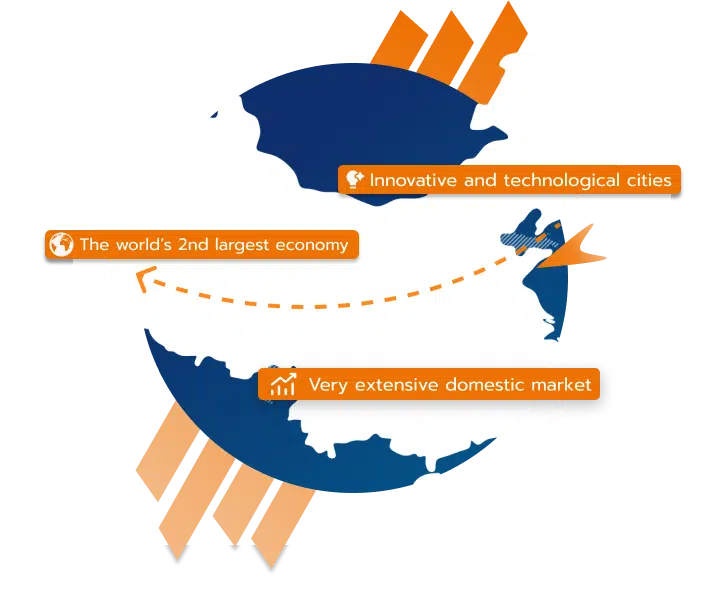Doing Business In China
The Chinese economy and market are among the most dynamic in the world, with 455 million inhabitants currently being part of the middle class. China enjoys a highly dense network of ecosystems and clusters that can support many sectors, with excellent infrastructure within the country and towards overseas destinations.
Our Partners:





/ The Chinese Market in a few words
Formerly a developing country with cheap labour cost, China has become the world’s second largest economy, with a GDP of $18 trillion.
Since the opening of the country in 1978, China quickly became an important destination for foreign investors. With a population of 1.4 billion inhabitants and an area of 9.6 million km², China developed a vast and dense ecosystem of clusters for all industries as the “world’s factory”.
Now, the Chinese economy is investing heavily in R&D and locally designed products to move from the “Made in China” to “Created in China”. Among the most dynamic sectors, we can find the healthcare, automotive, IT & telecommunication, and cleantech sectors.
As the third largest country in the world, China has developed a vast and modern infrastructure network with airports, seaports, highspeed train, and highway connecting all provinces. Nevertheless, the country is still not homogenously developed and will not always present similar opportunities to foreign companies and their products.
Overall, foreign companies with limited experience with China will privilege super first-tier cities (Beijing, Shanghai, Guangzhou, Shenzhen) to start their exploration of the market, while companies with more investments and presence in the country will target lower-tier cities that recently registered accelerated development (Chengdu, Qingdao, Suzhou, Hangzhou, Tianjin, Chongqing, etc.).
1.4 bn
Population
CNY
Currency
18 tn
GDP (Dollar)
5.3%
Economic Growth Rate
/ ALTIOS in China
ALTIOS provides all the tailored tools through our local team and expertise to facilitate your investment projects in China.
/ Set Up a Business in China

/ Ready to grow in China?
Our team of friendly experts loves nothing more than helping businesses like yours get off to a flying start in China.

